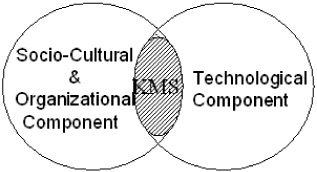KM and IT Outsourcing
|
|
The focus of previous studies on the relationship between IT outsourcing and KM has been on the knowledge issues between the contracting parties. For example Currie and Pouloudi (2000) relate the outsourcing decision to the value the organization attaches to their knowledge-based assets, they conclude that consideration of the value of knowledge-based assets, knowledge creation, growth, and retentions could affect the outsourcing decision. Their conclusion also supports the view that organizations that considered IT as core competence are likely to insource while organization that think otherwise may likely outsource. However, they did not elaborate further on whether the outsourcing decision allows the organizations to focus more on their core competency. Although it is the core competencies that really distinguish a company competitively and reflect its personality. According to Hitt et al. (1999), core competencies emerge over time through an organizational process of accumulating and learning how to deploy different resources and capabilities. Like in product development where organization can focus on their core competency, organization could also focus on the issues that they understand better in a dynamic organization change like knowledge management.
Although KM is currently being viewed as a combination of the technological component and the social-cultural, organizational component, relatively little attention has been paid to the issue of outsourcing the IT component. Balancing these components could yield effective KM and improve productivity, efficiency, innovation and competence of an organization. In the knowledge management components described by Alavi (1997), effective KM occurs at the intersection of the technological component and social-cultural and organization component (Figure 2).

Figure 2: Knowledge management components (Alavi, 1997)
Therefore, for an organization to have an effective KM practice, there should be a balance between the technological component and the social-cultural, and organizational component. Technology is often considered to be the easier component. Dan Holthouse in his foreword to Information technology for Knowledge management (Borghoff and Pareschi, 1998) remarked on this: "Technology is the easier piece of the problem to solve, it's far more challenging to change people's behavior and to create a learning environment that fosters the expansion of individual's personal knowledge. Therefore, organization could do better if the internal resources [were] focused on the people aspect and allow an external organization that has the adequate [expertise], to handle the (easier piece of) technology."
|
|
EAN: 2147483647
Pages: 224